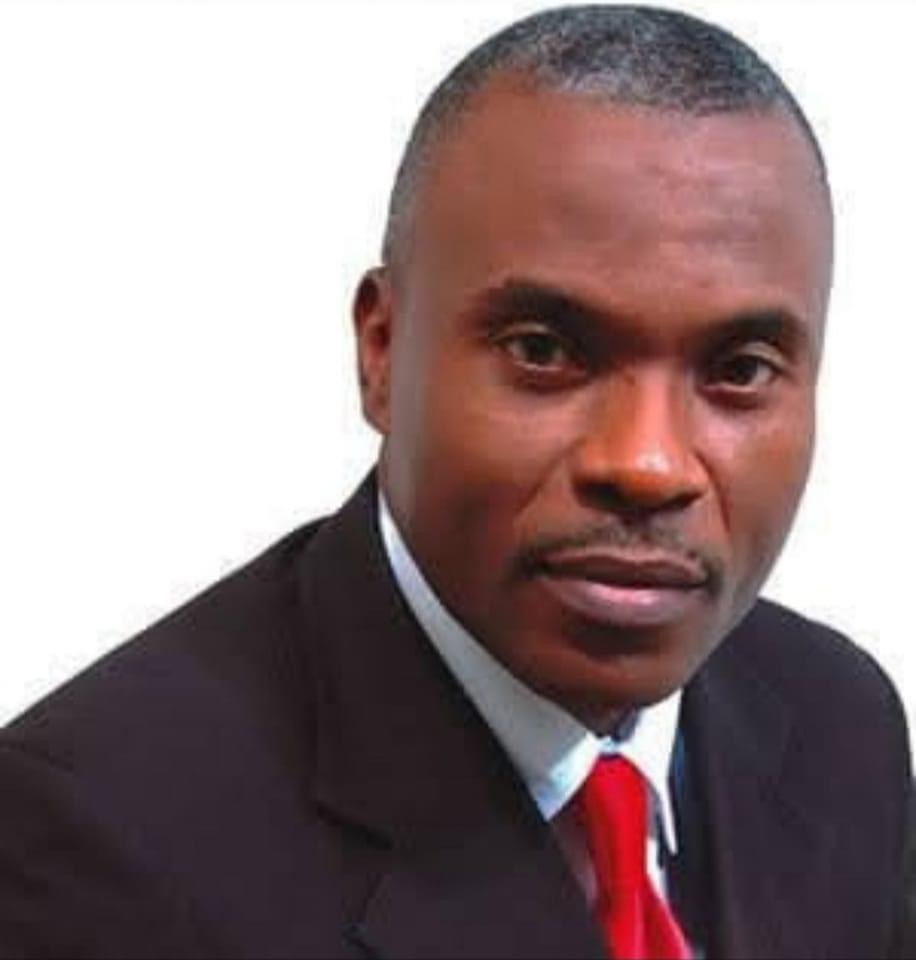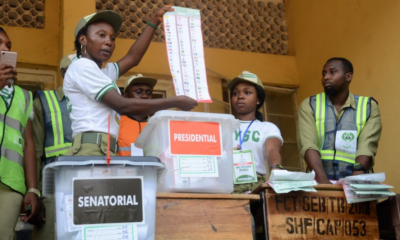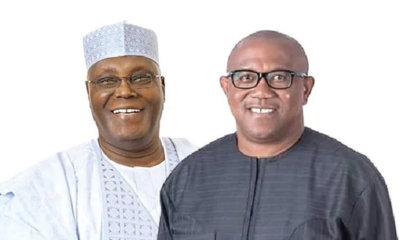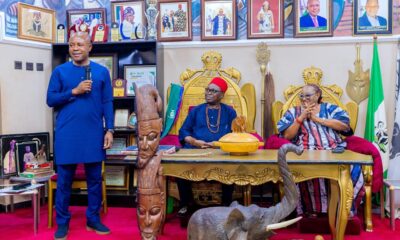GROpinion
[OPINION] My Boarding School Experience


By Azuka Onwuka
Since last week when 11-year-old Sylvester Oromoni, pupil of Dowen College, Lagos, was reported to have died from injuries allegedly sustained from the bullying meted out to him by some senior students of the school, there has been an outpouring of outrage against the management of the school. The videos of the pain the little boy went through before he died broke many people’s hearts.
There were allegations that the boys who bullied him were members of a secret cult group and that they did that to him because he refused to join them. Another version of the story was that they visited their anger on him because of an earlier issue with him that led to them being reported to the school authorities. The school had earlier said that Sylvester injured himself while playing football. This seemed to be what he told the school authorities because of the fear instilled in him by his attackers that if he told anyone what they did to him, they would kill him.
The incident has also elicited condemnation for the boarding school system, with many painting scary pictures to show the boarding school system as dangerous to pupils. The argument has been that children are meant to stay close to their parents until they are about 16 years old and ready to go to a university or leave home to start working. During that period, parents are supposed to mould them into what they want them to be until they become mature. There is merit in this argument but some of us who went to boarding are eternally grateful for the boarding school system despite all its challenges. Consequently, we also sent our children to boarding school.
Growing up, the best thing that happened to me was the fact that I spent some years in boarding school. Even though our parents were not well educated, they ensured that all six of us went to boarding school, including those of us whose schools were about three kilometres away from our home. Being in boarding school transformed certain things in me. I went into boarding school at 12 years old. Until I got into boarding school, I didn’t know that normal human beings could sleep during the day. I thought it was for those who were ill or plain lazy. There was so much playing to do that sleeping during the day was not an option. There were streams to visit for swimming. There were football and table tennis to play, kites to fly, motorcycle wheels to roll, bicycles to ride, wrestling bouts to hold, okoso games to play.
Then there were trips to different bushes to search for wild fruit. During the season of certain fruit like udara (African star apple) and mango, we would go from tree to tree to pick the fruits and finally pitch our tent under the one that produced the sweetest fruits and had the best terrain for play. Intermittently a fruit would fall and we would make a dash for it.
Then there was the cream of excitement: funeral ceremonies of men. At that time in the late 1970s and early 80s, the churches had not demonized masked spirits called mmanwu as idolatry. After the church funeral service and interment, the church priests and choir would depart and different mmanwu would perform. If the dance troupe Egededge would perform, then the event was even more colourful.
When I got to boarding school, I learnt that we must wake up by 5.15 am once the rising bell rang. We would light our lamps right in the darkness, even before the generator came on. Then we would run to the middle of the hostel with our hymn book before the count of three by the house monitor who was one year below the house prefect. We would sing a hymn, a junior would pray, then we would listen to the announcements and run off to a spring about one kilometre behind the school to fetch water for our senior as well as have our bath. We passed through a footpath in that darkness with our torches. Thankfully, nobody was bitten by a snake. Upon our return, we would sweep our duty areas, dress our beds for inspection, and then go to refectory for our breakfast.
I was shocked when after having our lunch, a bell rang and I was told it was time for siesta. The prefects went round with canes to ensure everybody was in bed. I lay on my bed in broad daylight wondering what a healthy, active human being should be doing in bed at a time like that. I asked those around me what if I was not feeling sleepy. They told me to just lie down there and keep calm for the one hour. Surprisingly, after some minutes of boredom, sleep took over me. It was only the bell for afternoon prep that woke me up. I was surprised that I slept in the afternoon!
That evening and later at night when we had our night prep, I noticed that I was strong and alert while reading. Those who didn’t have their siesta slept off in class after some minutes. Because of that, I took it upon myself to have my siesta every afternoon. It has been a tradition I keep till today as much as humanly possible. Any day I take my siesta, reading or writing at night becomes easy and fruitful.
I also learnt in boarding school the proper use of cutlery for eating. In addition, it stuck in me from then till now that one should not go around bare-footed, even within the compound. It was an offence to be seen in school after school hours moving around without your flip-flops.
It was also in boarding school that I first learnt how to manage my provisions and money from one week to another and from one month to another. I devised means to hide my money in my cupboard that even if someone broke into my cupboard, the person would not see where my money was hidden. Consequently, my money was not stolen for once. When I found out that my first school father would take my keys while I was sleeping and take my beverages, I devised a means to hide my keys while sleeping. I also learnt that junior lights out was 9.30 pm weekdays and 9pm weekends, while senior lights out was 11pm.
I learnt how to plan my day in boarding school. I learnt that there was a time to sleep, to wake up, to pray, to do your chores, to eat, to rest and to read. I learnt how to have a timetable for reading. I learnt cleanliness. The weekly inspection result was announced every Friday during the house meeting. I was afraid of ever coming last and getting the pig trophy. Therefore, I ensured that my clothes, hair, nails, shoes, bed, and corner were always clean.
Before boarding school, I was not confident to address any group of people. Stage fright was my companion. In my primary six when I was chosen to attend the birthday of our state governor, I returned to school and was called upon to tell the school my experience. I stood before the school, tongue-tied, looking at the ground where my right foot was creating some amazing abstract artwork only a handful of art aficionados could interpret. When I got into boarding school, it became a tradition to stand before the house members every Friday night to introduce yourself or explain what you understood from the bible passage read that night. After doing it repeatedly, all fears of standing before a crowd evaporated.
However, life in boarding school was not all rosy. Life was harsh for many of us as junior students. There were days we wished we ran away to our homes. The punishment was too much. If you turned left, you were guilty of one thing. If you turned right, you were guilty of another thing. If you turned back, it was a problem. If you went straight or remained still, you were guilty. And most times, you were told to obey before any complaint. In addition, you were regularly punished for no reason or for the errors of others.
There were deviants in boarding school. There were boys who engaged in homosexualism. There were boys who paid for rooms called bunks around the school where they hosted girls. There were those who would hide behind the hostel and smoke cigarettes. Some were said to even smoke weed. There were those who sneaked out of school to attend night parties or nightclubs or visit brothels. But students knew that once they were caught, the punishment was expulsion. The fear of bringing shame to your family was a huge deterrent.
Also there were seniors who were unnecessarily wicked to the juniors. They were power-drunk and acted like demi-gods. Juniors said silent prayers of harm for them. Some daring juniors played expensive pranks on such seniors like rubbing some devil bean pods on their bed. And when the itching started, everybody laughed at them silently except their classmates who laughed boldly. Such students never received success cards from juniors during their final exams. If they failed their external exam and returned to the same school for their “second missionary journey”, they got a taste of their wickedness.
There were also good seniors who stood up in defence of juniors when they were unduly maltreated. School fathers also ensured that no senior was unduly wicked to their school sons.
However, it is one thing to complain about wicked seniors; it is another thing not to be a wicked senior. Ironically most of the so-called victims of wicked seniors later became wicked seniors themselves without even knowing it. To many, such callousness is nothing but “school life”. But that is not true.
Bullying exists in Nigerian schools, but what happened to little Sylvester at Dowen College was outrageous, if the accounts in the public domain are anything to go by. If Sylvester was sleeping in his hostel when those boys came in at night to physically assault him, does that mean that no member of staff of the school lived in the hostel with the students? So if students start fighting at night and using dangerous objects against one another, there would be no adult to stop them or even know the story behind the incident? Today’s boarding school cannot be run like that of our era. There is no reason why a hostel master or mistress should not live by a male or female hostel to always know what is happening there.
In this modern age, there are many things schools should put in place to ensure that what happened to Sylvester at Dowen College does not happen to another child. One is that schools must create rules against bullying and enforce them strictly. The problem is that many private schools fear the parents of their students too much. They fear that enforcing rules strictly will make them lose many students. But it works the other way round. When parents trust that their children are safe from bullying and that no offending student will be allowed to go scot-free, they trust your school more and feel happy to send their children to your school.
Schools should also have sources through which they know when some untoward things are happening under their roof. It can be a teacher sexually molesting a student, or a student sexually molesting another student, or a case of physical molestation or whatever. Principals and teachers cannot be aloof while running a school where parents have entrusted their children in their care.
Whatever the reason that caused the death of Sylvester Oromoni, his death should not be allowed to go like others. If the investigation indicts any group or individuals, they should be punished. No parents like to send their children to school only to lose such children under questionable circumstances.
-



 GRPolitics4 days ago
GRPolitics4 days agoLet the People’s Voice Stand: A High‑Assertiveness Call to Democratic Integrity in the Digital Age
-



 Spotlight4 days ago
Spotlight4 days agoProphetic Outlook for 2026: Help Is on the Way
-



 GRPolitics4 days ago
GRPolitics4 days agoAmidst Atiku and Obi in ADC, Bola Ahmed Tinubu Retains a Significant Structural Advantage Ahead of the 2027 Election – A Data‑Driven Assessment
-



 Culture4 days ago
Culture4 days agoGovernor Mbah Visits Igwe Greg Ugwu, Enyi 1 of Attakwu, Nkanu West LGA








